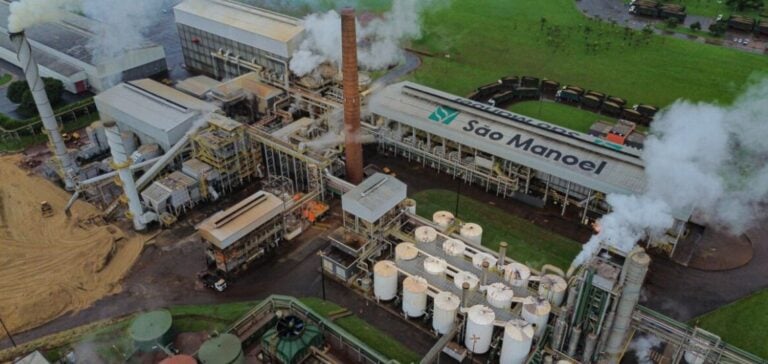Brazil, the world’s second largest soybean oil exporter, could see its exports come to a halt in the next few years due to growing domestic demand for biodiesel. Biodiesel blending mandates are reaching record levels, increasing domestic consumption of soybean oil, the main ingredient in this biofuel. Biodiesel is developing rapidly in Brazil, and the country imports foreign biodiesel alongside its own production.
Changes in mandates and impact on production
In 2024, Brazil ‘s biodiesel blending mandate is 14% (B14), the highest in its history. By 2025, this percentage will have risen to 15%, according to AgRural projections. Data from Abiove (Associação Brasileira das Indústrias de Óleos Vegetais) show that soybean oil will account for 72% of raw materials used for biodiesel production in 2024, compared with 69% in 2023.
The increase in blending mandates in recent years has been accompanied by a reduction in soybean oil exports. In 2023-2024, exports fell by 22.2% to 1.4 million tonnes, despite an upward trend in production, according to the United States Department of Agriculture (USDA).
Economic and commercial impact
The reduction in Brazilian soybean oil exports, which reached high levels in 2021 and 2022 thanks to reduced blending mandates, could have significant implications for world trade. India, the main importer of soybean oil, could be particularly hard hit. In 2023-2024, 21.2% of India’s imports came from Brazil. A drop in Brazilian exports could force India to look for other trading partners.
Analysts at Rabobank estimate that Brazil could stop exporting soybean oil within a few years if soybean crushing capacity does not increase or if alternative raw materials are not used. Carlos Mera, head of agricultural markets at Rabobank, predicts that Brazil will have to adjust its mandates to avoid significant imports.
Pressure on producer prices and margins
Pressure on soybean oil prices is increasing due to abundant supplies in South America and reduced exports to meet domestic demand. In April, soybean crush volume in Brazil reached 4.8 million tonnes, a record for the month, according to S&P Global Commodity Insights forecasts. However, soybean oil prices at FOB Paranagua are at their lowest level for three years.
Increased supplies of oil and meal in South America should put pressure on prices in the months ahead. “The majority of soybean oil is destined for the domestic market to satisfy the blending mandate, reducing exports,” according to S&P Global analysts.
Impact of tax measures and future prospects
On June 4, the Brazilian government introduced “provisional measure 1227” to restrict the use of tax credits, which is expected to increase the costs of grain and oilseed exports, further affecting the outlook for soybean oil. “For crushers, the industry has accumulated $11.8 billion in SIP/COFINS credits, while in the biodiesel sector, the impact would total $2.4 billion,” according to independent analyst Geraldo Isoldi.
Shredder margins, currently around 3%, would be considerably reduced. This measure temporarily paralyzed the Brazilian grain and oilseed export market, as buyers redirected their purchases to countries such as China.
Rising biodiesel mandates and recent tax measures indicate that Brazil will have to navigate between rising domestic demand and economic challenges to maintain its positions in the global soybean oil market.






















